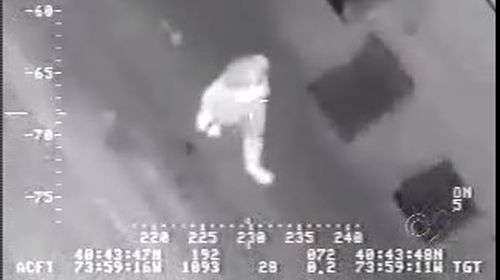
The conservative Heritage Foundation has issued a on ‚ÄúDrones in U.S. Airspace: Principles for Governance‚ÄĚ with proposals for how domestic drones ought to be regulated. The authors agree with much of what my co-author Catherine Crump and I said in our drones report last year. The Heritage Foundation tends to lean more towards national-security conservatism than libertarian conservatism, so when the ņŌįń√ŇŅ™ĹĪĹŠĻŻ and the Heritage Foundation see more or less eye to eye on an issue like this, it‚Äôs a sure sign that a national consensus is emerging.
The authors of the Heritage report (Paul Rosenzweig, Steven Bucci, Charles Stimson, and James Jay Carafano) say:
‚ÄúBecause of their surveillance capabilities, without proper legal guidelines and oversight, drones could threaten personal privacy and civil liberties.‚ÄĚ
‚ÄúCongress should play an active role in establishing‚ÄĚ guidelines on drones.
‚ÄúAny increased intrusion on American privacy interests must be justified through an understanding of the particular nature, significance, and severity of the threat addressed by the program. The less significant the threat, the less justified the intrusion.‚ÄĚ
‚ÄúNot all intrusions are justified simply because they are effective. Strip searches at airports would certainly prevent people from boarding planes with weapons, but they would do so at too high a cost.‚ÄĚ
‚ÄúWhatever the justification for the intrusion, if there are less intrusive means of achieving the same end at a reasonably comparable cost, the less intrusive means ought to be preferred. There is no reason to erode Americans‚Äô privacy when equivalent results can be achieved without doing so.‚ÄĚ
‚ÄúNo new system that materially affects citizens‚Äô privacy should be developed without specific authorization by the American people‚Äôs representatives in Congress and without provisions for their oversight of the operation of the system.‚ÄĚ
‚ÄúNo new system should be implemented without the full panoply of protections against its abuse.‚ÄĚ
Moving beyond those general principles, the paper says that:
‚ÄúThe use of drones in a military capacity (while armed) should be severely restricted to situations of actual invasion or insurrection‚ÄĚ
‚Äúthe use of drones for domestic surveillance of First Amendment activity is fundamentally at odds with U.S. constitutional principles‚ÄĚ
‚Äúdrones equipped with novel sensor arrays ought not to be permitted absent a clearly demonstrated need and a careful consideration of countervailing privacy and civil liberties concerns‚ÄĚ
‚Äúdrones should not be used as a platform for the collection of massive unstructured data sets that could form the basis for sophisticated tracking and behavioral analytics‚ÄĚ
‚Äúdrones are unsuitable for use as a routine means of surveillance in non-threatening situations‚ÄĚ
The paper also includes a list of uses of drones that, the authors say, ‚Äúought to have sensible and minimal restrictions.‚ÄĚ For many of the uses they list, such as personnel search and rescue and agricultural or environmental monitoring, we would agree. However, they also list ‚Äúlong-term surveillance of a specified area.‚ÄĚ We would not agree that there should only be minimal restrictions on, for example, the persistent monitoring of entire neighborhoods. Sensible would not mean minimal in that case.
They also endorse these ‚Äúsensible and minimal‚ÄĚ restrictions when it comes to ‚Äúcriminal personnel search and/or pursuit.‚ÄĚ I can imagine situations in which we wouldn‚Äôt object to that (for example, pursuit of fleeing bank robbers), but others in which we would (for example, searching an entire city using face- or gait-recognition for a fugitive who was last seen days or weeks ago).
The paper is a bit vague on these points, however, and overall, the Heritage paper is quite good, which I think reflects the broad political consensus behind the need to preserve privacy in the face of drone technology.

